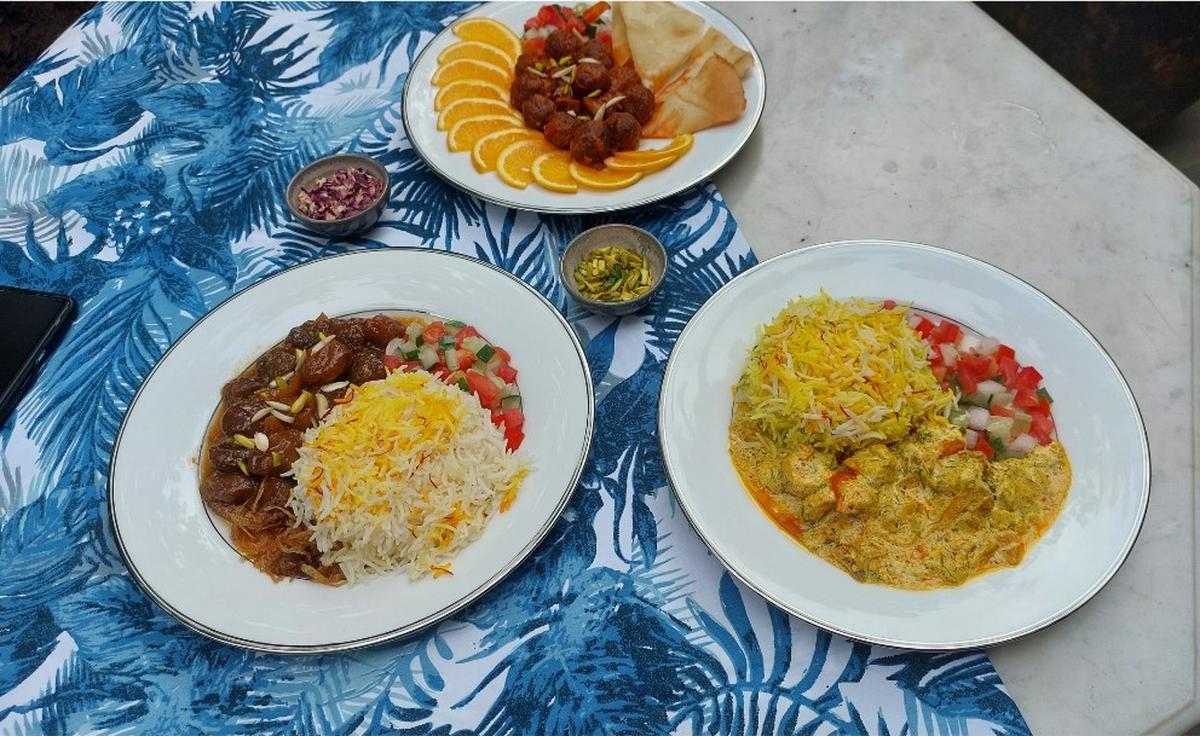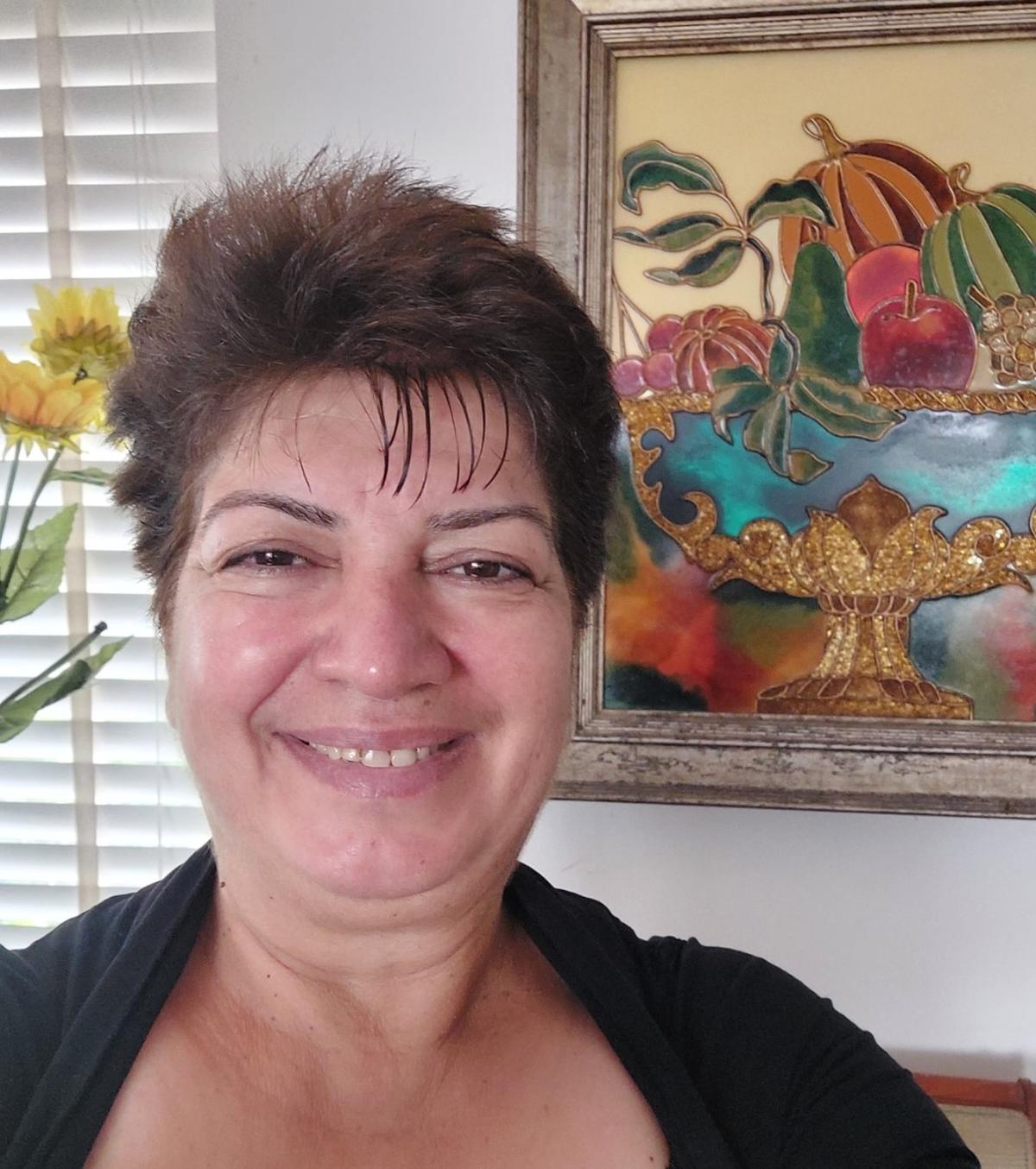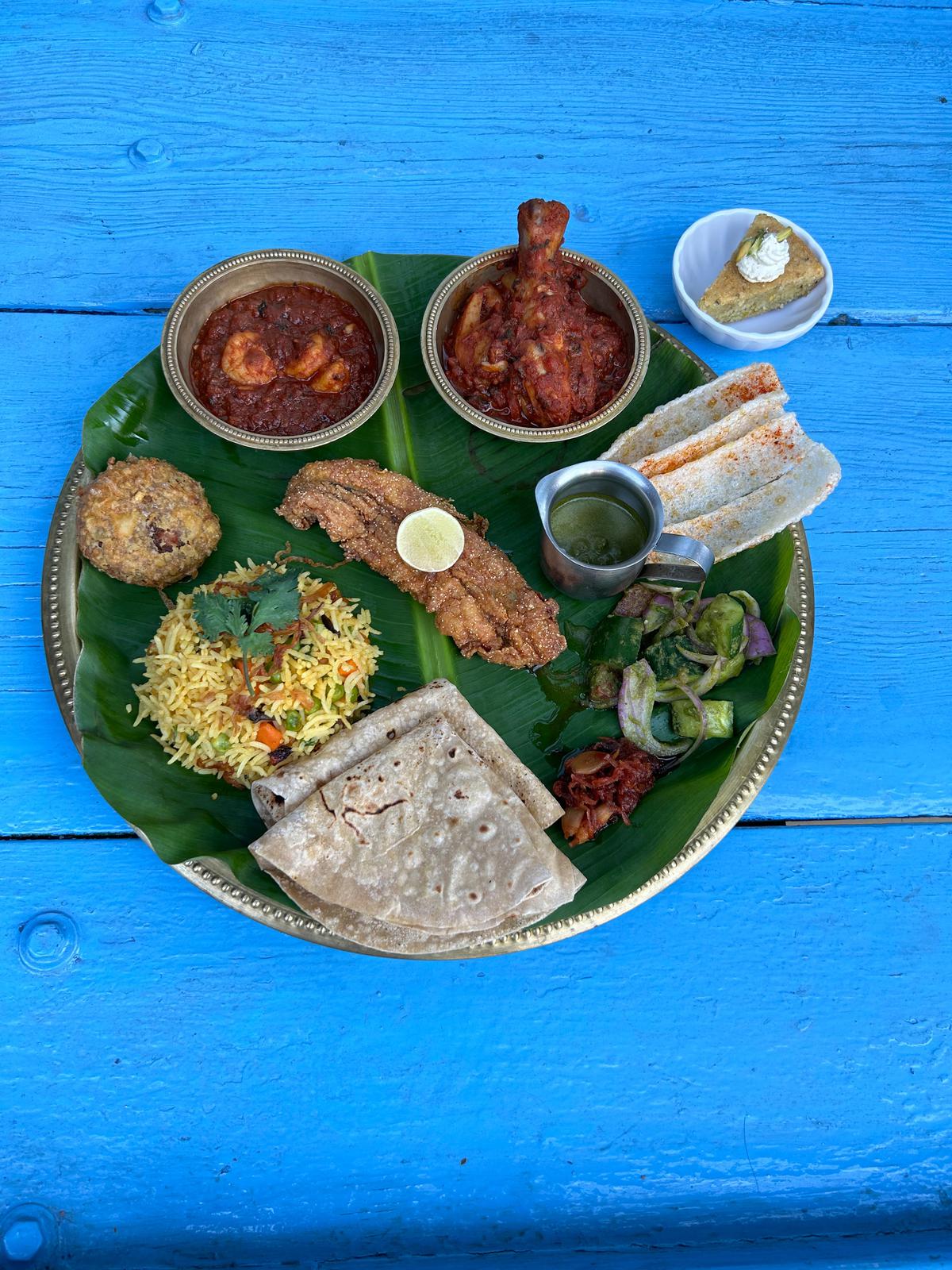Nowruz, the Persian New Year, is a time of renewal, hope, and joy celebrated by Iranians all over the world. The feast, served on the eve of the equinox, is a cherished tradition that brings families and friends together to enjoy the abundance of fresh ingredients.
As the winter chill melts away and flowers begin to bloom, Iranians all over the world await the arrival of the spring equinox to celebrate Nowruz. This ancient festival originated as a Zoroastrian celebration and has been observed for over 3,000 years. Nowruz, meaning “new day,” is a time of renewal, hope, and joy.
For Iranians, Nowruz is not only a new year celebration but also a celebration of spring. “It is just a beautiful time of year, with flowers blooming everywhere,” says Nasrin Karimi, who moved to Chennai from Iran in 1980. “The onset of spring looks and smells lovely, and that is how the feast at Nowruz is as well,” notes the Iranian whose restaurant Shiraz Art Cafe, in Chennai, serves authentic Persian food. This week, she is cooking Nowruz lunches and dinners, featuring ghormeh sabzi, berry chicken and plum chicken at the Westin in Chennai.
The celebration of Nowruz includes several rituals, such as a deep spring cleaning, small bonfires, and a grand decorative altar called haft-seen, which features seven symbolic objects, each beginning with the letter “S” in Farsi. These objects include sprouted wheatgrass ( sabzeh), oleaster or wild olive ( senjed), an apple ( seeb), a pudding made of germinated wheat (samanu), the spice sumac ( somagh), vinegar ( serkeh), and garlic ( seer).

Nowruz feast
| Photo Credit:
Special Arrangement

Nasrin Karimi moved to Chennai from Iran in 1980
| Photo Credit:
Special Arrangement
However, the most important element of Nowruz is the feast served on the eve of the equinox. Family and friends gather around the table to enjoy piles of herbs, the freshest fish, long-grain rice, and sweets. Each family has its own special dishes, but some of the delicacies are more time-consuming than others, like samanu, that needs hours of cooking in a pot.
Nasrin remembers her grandmother starting to prepare for the feast weeks before and even asking a baker to come home and help with the preparation. “As a child, I eagerly waited for it,” she recalls. Now, many families have started to buy pre-made samanu from shops, but for Nasrin and her family, the traditional way of making the feast is a cherished memory.
While the celebration marks the beginning of the new year on the first day of the Iranian calendar, which coincides with the March equinox, typically occurring around March 21, Parsis in India who follow the Zoroastrian calendar for their religious events, celebrate their new year in July or August.
The Persian Nowruz is celebrated by Parsis as Jamshed-e-Navroz with new clothes and spring cleaning, and their homes are decorated with roses and jasmine.
“A lot of people celebrate it on March 21, some, depending on the year, will celebrate it on March 20 or 21, very rarely on 22nd because it is an equinox so there is a shift in our calendar,” explains Kurush F Dalal, an archaeologist and culinary anthropologist. While most Parsis celebrate it quietly on the 21st regardless, “those who are hardcore will find out whether it is the 20th or 21st this year…The smart ones will celebrate it on both days,” he adds with a chuckle.
When it comes to traditional feast items for the day, the Iranians have several exclusive dishes such as Kuku Sabzi (herb-baked omelet), Ashe-Reshteh (noodle soup), and Sabzi Polow (herbed basmati rice), while the Parsis have the beloved Parsi falooda. “That is the only exclusive dish the Parsis have on the day. They enjoy the other dishes on other celebratory days too,” Kurush informs.
While some may assume that a hearty bowl of dhansak would be a part of the Parsi celebrations, Kurush clarifies that this is actually served during a funeral feast and not a celebratory one. However, he mentions that it is not uncommon for families to include it like he does, a tradition that has been passed down through generations.
For Kurush’s family, the feast always consisted of a mutton pulao paired with dhansak. The real star of the show, however, was his grandmother’s falooda, which she would make and send over in large glass bottles. “We would chill them in the fridge and shake them up before pouring out glasses for everyone. She would always send enough for tea time too,” he fondly recalls. At his restaurant, Katy’s Kitchen, in Mumbai, they offer a Parsi feast for home delivery.

Parsi Jamshed-e-Navroz bhonu at Soda Bottle Opener Wala
| Photo Credit:
Special Arrangement
Irfan Pbaney, country head, Soda Bottle Opener Wala, which is hosting a Parsi bhonu this week, explains the prominent flavours of Parsi cuisine are khaatu aney mitthu — sour and sweet. The bhonu offers a chance for customers to sample a variety of Parsi dishes and experience the flavours that define this cuisine.
“Our Navroz bhonu is a way to celebrate the Parsi culture and food,” Irfan says. “Folks who don’t know about Parsi food usually come in that day and it’s great for them because then they get to try a little of everything with the thaali.”
Even as the world evolves with modern food processing and automatic machines, the traditional way of making the feast remains a cherished memory for many. The addition of dishes such as samanu, mutton pulao, and falooda to the festivities is a testament to the diverse cultures and flavours that make these celebrations so special. As Nasrin explains, “the Nowruz feast is not just about food, it’s about coming together with family and friends to celebrate culture, tradition, and the joy of spring.”
Nasrin Karimi is hosting a Nowruz food festival at Seasonal Tastes in The Westin, Chennai until March 26. A meal for two is priced at ₹4,900. Katy’s Kitchen in Mumbai is offering the festival menu until March 26, with 24-hour delivery for approximately ₹ 2,000 for two. Reservations can be made by calling 9820136511. Soda Bottle Opener Wala is serving vegetarian and non-vegetarian Parsi bhonu at their Delhi, Noida, Gurugram, Mumbai, Hyderabad, and Bengaluru outlets until March 21 and until the 26th in Kolkata. A meal for two is priced at approximately ₹ 2,000 and reservations can be made by calling 9930012217.
Stay connected with us on social media platform for instant update click here to join our Twitter, & Facebook
We are now on Telegram. Click here to join our channel (@TechiUpdate) and stay updated with the latest Technology headlines.
For all the latest Food and Drinks News Click Here
